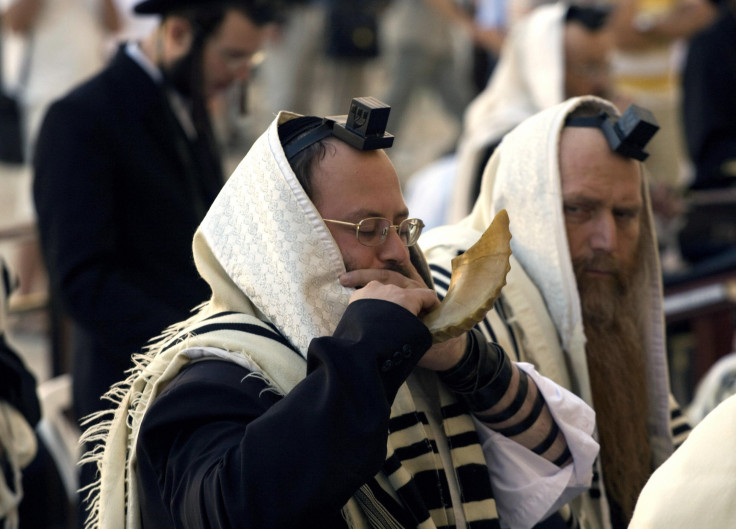What Are Selichot Prayers? What You Need To Know About This Annual Jewish Tradition

With the Jewish New Year around the corner, Jews around the world will start observing Selichot prayers this Saturday night. What exactly are they?
What Are Selichot Prayers?
Selichot, the singular of which (selicha) means "forgiveness" in Hebrew, are penintential prayers and poems that are often recited in Jewish communities starting on the Satuday night before the Jewish New Year, or Rosh Hashanah, all the way through Yom Kippur, the Day of Atonement. Rosh Hashanah starts at sunset on Sept. 13 this year, followed by Yom Kippur on Sept. 23.
What Do The Selichot Prayers Consist Of?
The first Selichot service is often a communal one conducted after nightfall on the Saturday before Rosh Hashanah. A rabbi often delivers a sermon, and the service is typically attended by everyone in the community. A big part of the Selichot service includes the recitation of the Thirteen Attributes of God, which Jews believe were revealed to Moses. They are Ha-shem [1], Ha-shem [2], God [3], merciful [4], and gracious [5], long-suffering [6], abundant in goodness [7] and truth [8], keeping mercy unto the thousandth generation [9], forgiving iniquity [10] and transgression [11] and sin [12], who cleanses [13]. Ha-shem (literally, the name) is listed twice because it connotes two different kinds of mercy expressed by God: that before a person sins and that after a person sins.
After the first Selichot prayers, they are typically recited in the early morning for the duration of the "Days of Awe" penitential period until Yom Kippur.
What Is The Significance Of The Selichot Prayers?
This period is a time for Jews to think about their behavior in the past year and any sins they may have committed -- in order to avoid them in the new year. Worshippers ask God for forgiveness for their past sins, and the prayers are specifically designed to help Jews focus on the process of teshuvah, which is Hebrew for repentance or turning.
The prayers are specifically tailored to help worshipers direct their hearts and minds to the process of teshuvah. Many Jews also use this time to forgive others and ask for forgiveness from one another.
© Copyright IBTimes 2025. All rights reserved.





















